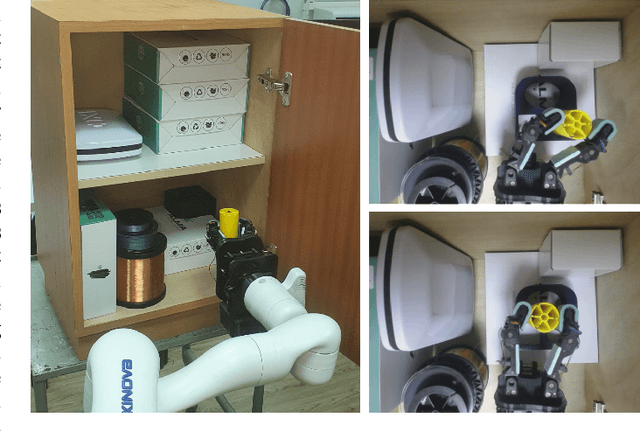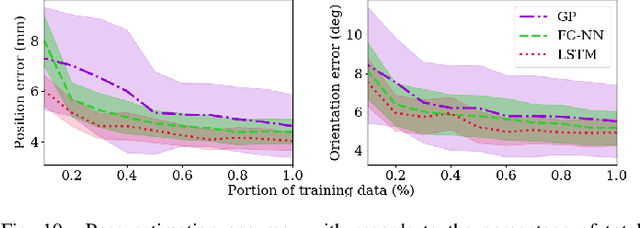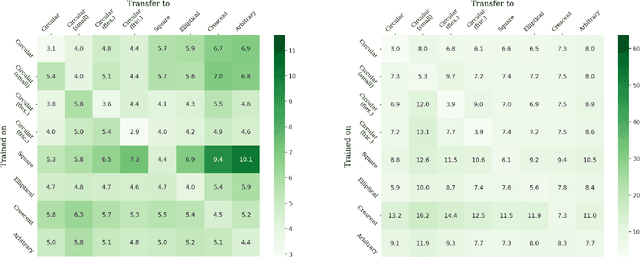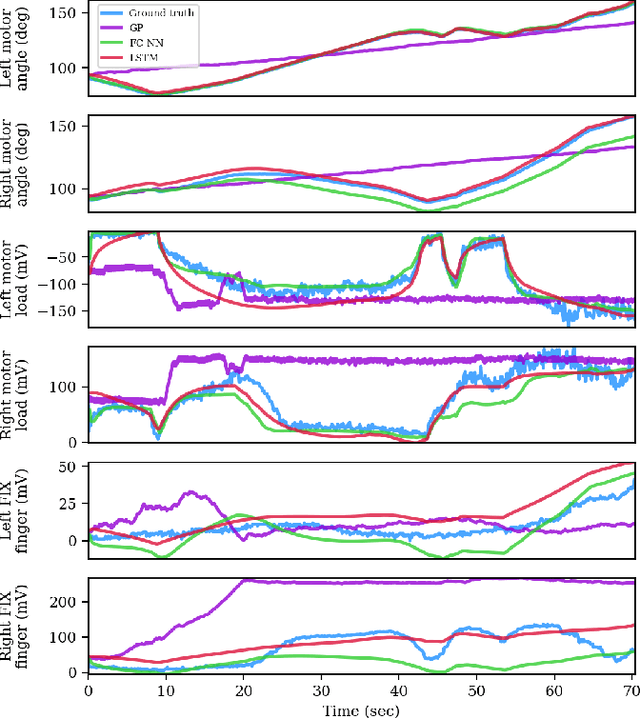Learning Haptic-based Object Pose Estimation for In-hand Manipulation with Underactuated Robotic Hands
Paper and Code
Jul 06, 2022



Unlike traditional robotic hands, underactuated compliant hands are challenging to model due to inherent uncertainties. Consequently, pose estimation of a grasped object is usually performed based on visual perception. However, visual perception of the hand and object can be limited in occluded or partly-occluded environments. In this paper, we aim to explore the use of haptics, i.e., kinesthetic and tactile sensing, for pose estimation and in-hand manipulation with underactuated hands. Such haptic approach would mitigate occluded environments where line-of-sight is not always available. We put an emphasis on identifying the feature state representation of the system that does not include vision and can be obtained with simple and low-cost hardware. For tactile sensing, therefore, we propose a low-cost and flexible sensor that is mostly 3D printed along with the finger-tip and can provide implicit contact information. Taking a two-finger underactuated hand as a test-case, we analyze the contribution of kinesthetic and tactile features along with various regression models to the accuracy of the predictions. Furthermore, we propose a Model Predictive Control (MPC) approach which utilizes the pose estimation to manipulate objects to desired states solely based on haptics. We have conducted a series of experiments that validate the ability to estimate poses of various objects with different geometry, stiffness and texture, and show manipulation to goals in the workspace with relatively high accuracy.
 Add to Chrome
Add to Chrome Add to Firefox
Add to Firefox Add to Edge
Add to Edge